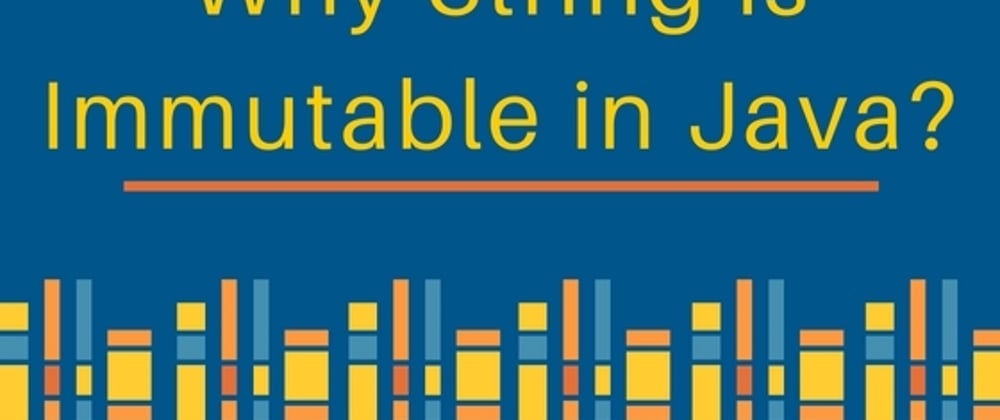Unalterable Strings: A Trick Part in Ensuring Data Consistency and Dependability
In the realm of data management, the significance of immutable strings can not be overemphasized. These unvarying series of characters play an essential function in maintaining the integrity and accuracy of information within systems. By preserving a state of immutability, information uniformity is made certain, promoting a structure of dependability whereupon crucial procedures depend. The principle of unalterable strings transcends simple formality; it is a linchpin in the facility web of data governance. As we check out the advantages, execution techniques, and sensible applications of unalterable strings, a clearer photo arises of their crucial nature in securing the electronic landscape.
The Idea of Immutable Strings
Immutable strings, an essential idea in shows, describe strings that can not be customized as soon as they are created. Basically, once a string value is appointed, any type of operation that appears to modify the string actually develops a new string. This immutability ensures information consistency and dependability in applications, as it avoids unexpected modifications to the initial information.
Benefits in Data Uniformity

Data uniformity is vital in different aspects of software program growth, including data source management, multi-threaded settings, and dispersed systems (Why are strings immutable in Java?). Immutable strings add substantially to achieving this uniformity by avoiding data corruption because of concurrent access. In scenarios where numerous processes or threads connect with the same data at the same time, unalterable strings work as a secure against race problems and synchronization issues
Additionally, the immutability of strings streamlines debugging and screening procedures. With unalterable strings, programmers can rely on that when a string is established, it will stay unchanged, making it simpler to map the resource of mistakes and guaranteeing that examination situations produce constant outcomes. This dependability in data dealing with inevitably leads to extra durable and steady applications.

Carrying Out Immutable Strings
Making certain the immutability of strings calls for a thoughtful method to their implementation in software application growth. As soon as a string object is created, one key approach is to design string classes in a method that avoids modifications. By making strings unalterable, developers can boost data uniformity and integrity in their applications.
To carry out unalterable strings successfully, programmers ought to prefer creating brand-new string things instead than customizing existing ones. This technique ensures that once a string is designated a value, it can not be changed. Furthermore, any procedure that shows up to customize the string should develop a brand-new string with the wanted changes as opposed to modifying the original.
In addition, using immutable strings can simplify concurrency administration in multi-threaded atmospheres. Considering that unalterable strings can not be altered after creation, they can be safely shared among multiple strings without the threat of data corruption.
Duty in Reliability Assurance
In software program growth, the utilization of unalterable strings plays a critical duty in making sure the reliability of data procedures. Immutable strings, once developed, can not be customized, making sure that the information they represent stays constant throughout the application's implementation. This immutability property supplies a degree of guarantee that the data being processed will not be inadvertently changed, leading to unforeseen end results or errors in the system.
By incorporating unalterable strings right into software design, designers can enhance the dependability of their applications by minimizing the risks connected with mutable data - Why are strings immutable in Java?. Unalterable pop over to this web-site strings help in protecting against information corruption or unintended alterations, which can be particularly critical when taking care of sensitive details or when information honesty is paramount
Additionally, the usage of immutable strings simplifies simultaneous handling, as several threads can safely gain access to and share string information without the danger of one thread changing the content while another reads it. This facet contributes dramatically to the overall reliability of the software system, making sure foreseeable and constant behavior in data dealing with procedures.
Applications and System Integration
The smooth assimilation of unalterable strings into different applications and systems is essential for ensuring robust information consistency and dependability throughout varied technological environments - Why are strings immutable in Java?. Unalterable strings play a critical role in boosting the honesty of information exchanges and communications within complicated software application ecological communities. By integrating unalterable strings right into applications, designers can mitigate the dangers associated with data tampering, unapproved alterations, and unintended modifications, thus strengthening the overall safety and security posture of the system
In the context of system combination, unalterable strings act as a foundational component for establishing safe communication channels and assisting in smooth information transfers between different elements. Their immutable nature guarantees that data sent in between systems continues to be the same and verifiable, decreasing the likelihood of variances or Clicking Here mistakes that could endanger the integrity of the whole system. Moreover, unalterable strings can enhance interoperability between inconsonant systems by giving a standard style for data representation, enabling a lot more reliable data handling and exchange procedures throughout interconnected platforms. By embracing unalterable strings in applications and system combination processes, organizations can strengthen their information framework and support the integrity and uniformity of their information properties.
Conclusion
In final thought, immutable strings play a crucial duty in maintaining information consistency and integrity in various applications and system integrations. By making sure that strings can not be changed as soon as created, the honesty of data learn the facts here now is maintained, decreasing the threat of errors and variances. Applying immutable strings can significantly improve the integrity of systems, inevitably bring about more precise and dependable data handling.
